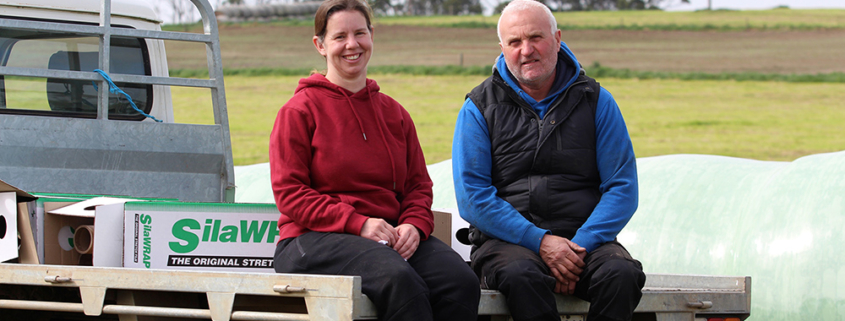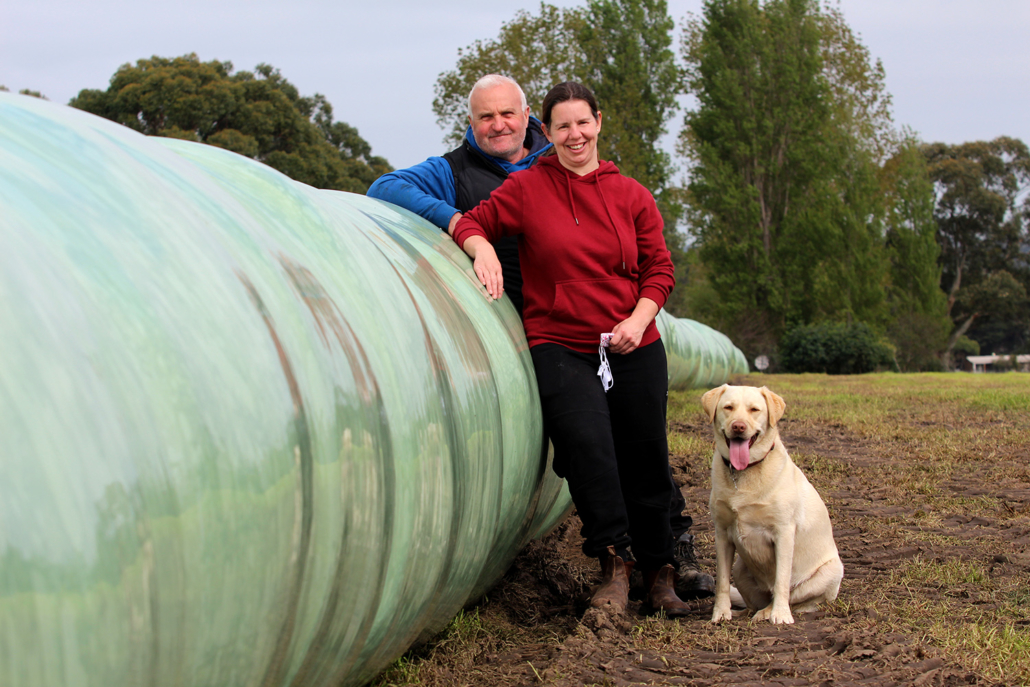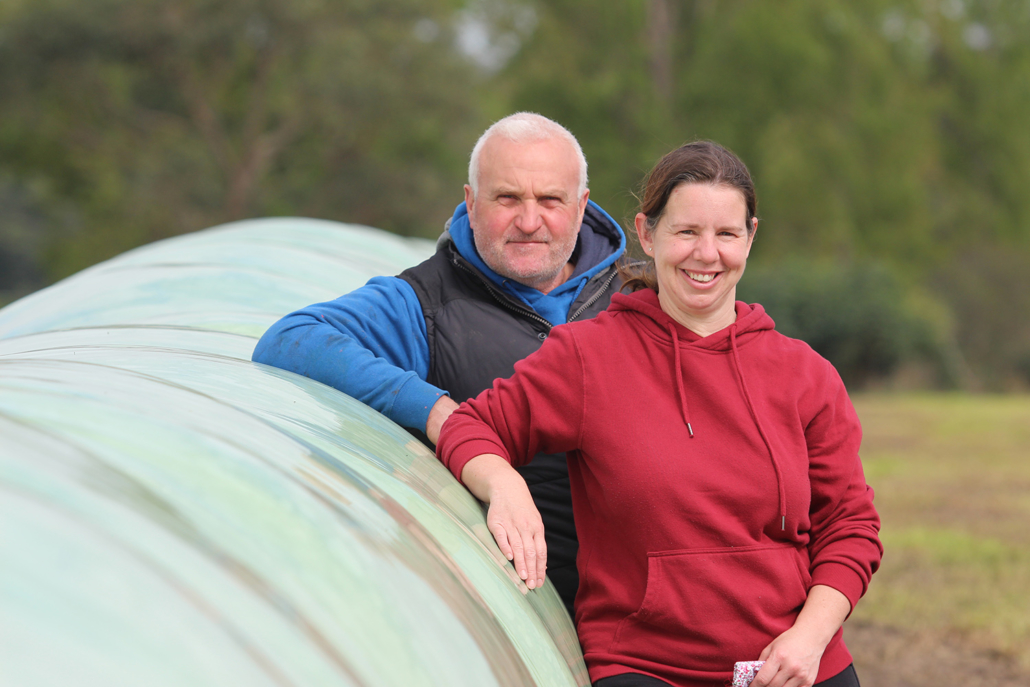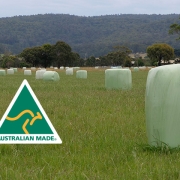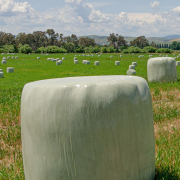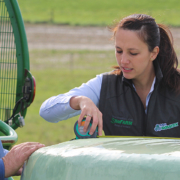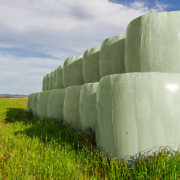Homegrown feed keeps lid on costs at Timboon
Quality silage is milk in the vat and money in the bank for one dairy farming family. Julia and Derek Gale milk up to 550 cows at Timboon in south west Victoria and produce all their own fodder to decrease costs and reduce their exposure to the feed market. Their silage harvest kicked-off in early October – between rainfall events – ensiling a few paddocks of perennial ryegrass on some rare dry days. The family make the equivalent of 4000 silage bales a year, combining silage tubes with individual bales. “With individual round bales we can do it ourselves, it is not a costly exercise because we don’t have to worry about the contractors, we can just do it when we want,” Derek said. “Sometimes if you are relying on contractors and you are ready to cut but they are busy and can’t get there.”
Food self-sufficiency helps the Gales control costs. “Bought in feed is great when it is cheap, but when you get a dry season or something everything is expensive it is hard on the financials,” Derek said. “If we can be self-sufficient when we have a bad season or (milk) prices are low and feed costs are high, we can get through.” Silage is fed to the milking herd on a feedpad and is their main feed supplement besides grain fed in the dairy bail. Julia said there’s a lot which goes into growing and making silage and the wrap helps to maintain the quality of the stored feed. The Gale’s use SilaWRAP due to its price and robustness, the latter is especially crucial during the wrapping process. “We have bought other wrap in the past and it seems to get holes in it a lot quicker than this does,” Julia said. “And when we were wrapping it ourselves, it kept breaking on me. SilaWRAP is a lot better than other brands.
Every bale (with other brands) I found I’d have to get out and go to the wrapper. It wasn’t fun.” The Gales apply six layers of SilaWRAP on individual bales. Some of the bales are stored for up to a year, so this helps to maintain the quality and ensure there’s no wastage when the bales are unwrapped. Sorghum ensiled earlier this year has remained in the paddock as there’s been less need for supplementary feeding due to favourable seasonal conditions. With constant rain predicted for spring and summer this year, the silage season could be a long one, according to Julia. But with plentiful pasture in paddocks and a summer crop for grazing, this year’s silage could remain stored for quite some time.

